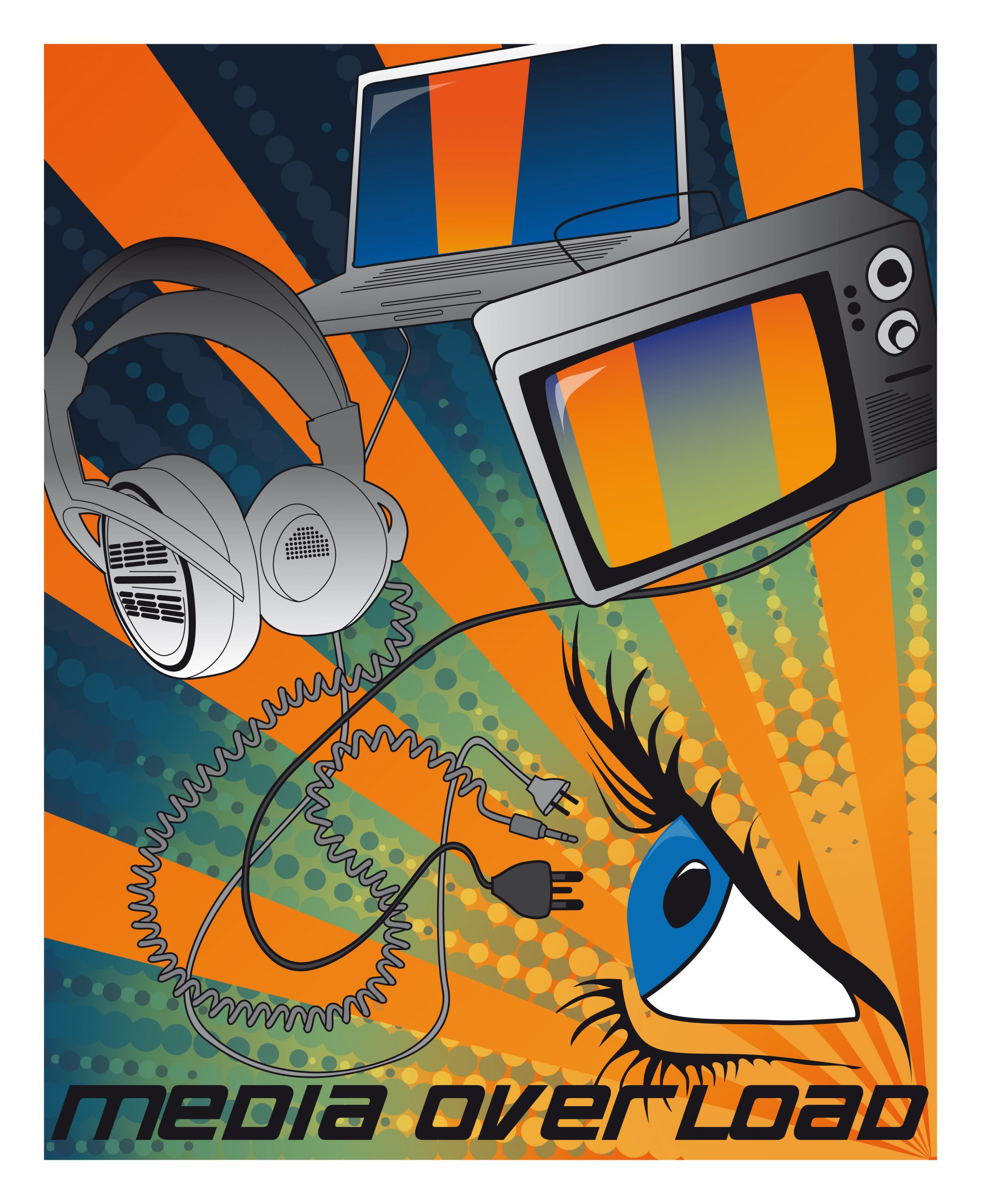It’s late evening, you’re sitting and unwinding from an intense day until you feel the nagging pressure to return to the world of news, podcasts, literature and TV. In a society built around consumption and productivity, how can we escape the fact that there is too much media and at what point do we stop engaging in it?
There is no denying that there has been an overwhelming media shift from the early 2000s TV channel days, to the hellscape that is 2023 media. Podcasts dominated by incels and motivational talks, BookTok informing you of the “modern-classics” you’ve missed out on and social media that cannot stay in its lane – (why does every platform need a short video section?).
In many ways, this is undeniably positive as small artists can access platforms that were previously dominated by the world of nepotism. Art and knowledge are more accessible than ever and you are never more than a minute away from understanding the latest global news. There is a sense of cultural capital gained by recalling the world’s great literature and critically acclaimed films, making us all feel encouraged to keep engaging.
Despite the benefits of our media age, practically it can feel that the gems of our time may be lost in an overwhelming sea of production, with 599 TV shows released in 2022 alone. Even worse, the invariant presence of fake and partisan news continues to fear monger, segregate watchers into homogenous groups and offer limelight for problematic politicians with no nuance on societal problems. Yet, this is not to say that we would favour a North Korean arrangement of only 4 television channels and government-ran news reporting. In fact, the plurality of our modern media is what makes it so brilliant, never before have we seen so many ways of life depicted in our entertainment. Instead, the solution lies in good old-fashioned media literacy. Let’s start recognising bias where it is.
Returning to the difficulty of “switching off” in 2023. You can’t help but feel guilt for neglecting to keep up with the headlines; Instagram infographic activism tells you you’re not educated enough, mainstream news tells you the world is worsening and there’s always a new issue to “give your take on”. Quite frankly, it’s impossible. There are obvious issues in the conflict between the negative mental toll on teenagers contemplating civil wars and melting ice caps, and the ethical failure of remaining ignorant of such issues. With Mental Health UK releasing information on the detrimental effects of “negative news” consumption, we’re left feeling bewildered about how to comprehend societal problems while also maintaining some sanity.
Ultimately, there’s no simple way to step off the hamster wheel of information and media consumption. However,, replacing screen time with a simple hobby; a walk, a craft (or even some long-form content of a book or documentary as opposed to the small-info-bites of Instagram reels) will make the transition easier and your brain will thank you! Yes, there is such thing as “too much media” but we can each choose how to navigate through it, for our, and society’s, well-being.
“Media Overload” by Rachel E. Chapman is licensed under CC BY 2.0.

